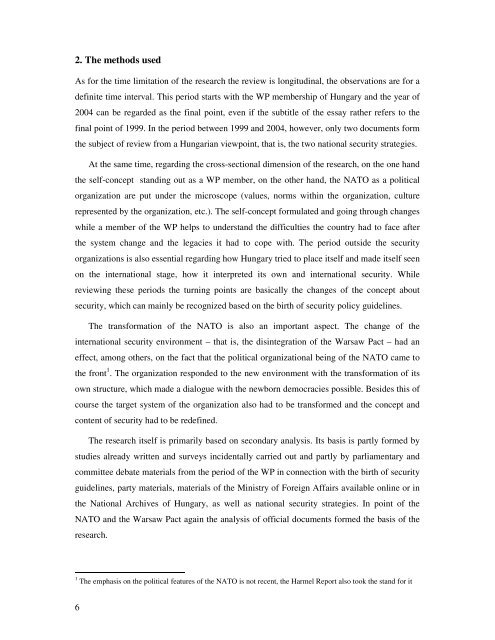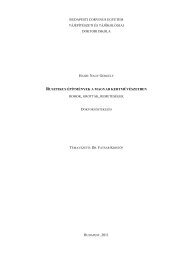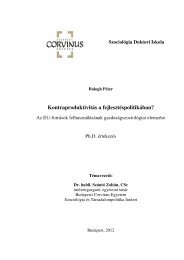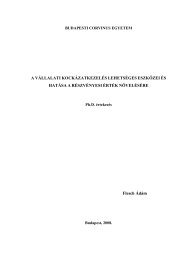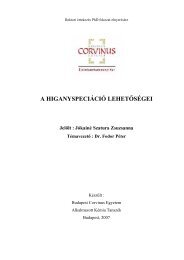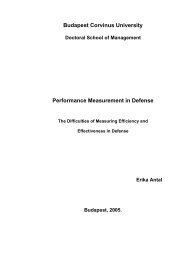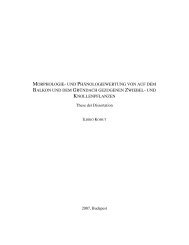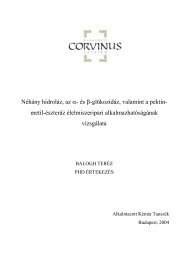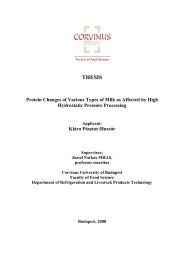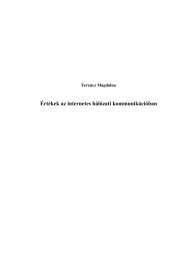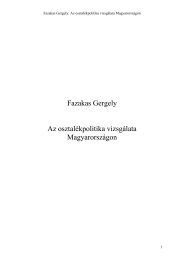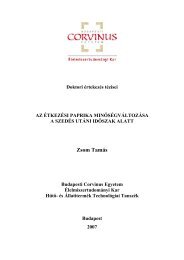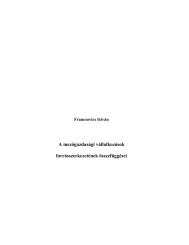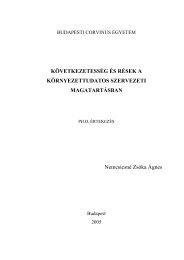THESES Kőváriné Ignáth Éva
THESES Kőváriné Ignáth Éva
THESES Kőváriné Ignáth Éva
Create successful ePaper yourself
Turn your PDF publications into a flip-book with our unique Google optimized e-Paper software.
2. The methods used<br />
As for the time limitation of the research the review is longitudinal, the observations are for a<br />
definite time interval. This period starts with the WP membership of Hungary and the year of<br />
2004 can be regarded as the final point, even if the subtitle of the essay rather refers to the<br />
final point of 1999. In the period between 1999 and 2004, however, only two documents form<br />
the subject of review from a Hungarian viewpoint, that is, the two national security strategies.<br />
6<br />
At the same time, regarding the cross-sectional dimension of the research, on the one hand<br />
the self-concept standing out as a WP member, on the other hand, the NATO as a political<br />
organization are put under the microscope (values, norms within the organization, culture<br />
represented by the organization, etc.). The self-concept formulated and going through changes<br />
while a member of the WP helps to understand the difficulties the country had to face after<br />
the system change and the legacies it had to cope with. The period outside the security<br />
organizations is also essential regarding how Hungary tried to place itself and made itself seen<br />
on the international stage, how it interpreted its own and international security. While<br />
reviewing these periods the turning points are basically the changes of the concept about<br />
security, which can mainly be recognized based on the birth of security policy guidelines.<br />
The transformation of the NATO is also an important aspect. The change of the<br />
international security environment – that is, the disintegration of the Warsaw Pact – had an<br />
effect, among others, on the fact that the political organizational being of the NATO came to<br />
the front 1 . The organization responded to the new environment with the transformation of its<br />
own structure, which made a dialogue with the newborn democracies possible. Besides this of<br />
course the target system of the organization also had to be transformed and the concept and<br />
content of security had to be redefined.<br />
The research itself is primarily based on secondary analysis. Its basis is partly formed by<br />
studies already written and surveys incidentally carried out and partly by parliamentary and<br />
committee debate materials from the period of the WP in connection with the birth of security<br />
guidelines, party materials, materials of the Ministry of Foreign Affairs available online or in<br />
the National Archives of Hungary, as well as national security strategies. In point of the<br />
NATO and the Warsaw Pact again the analysis of official documents formed the basis of the<br />
research.<br />
1 The emphasis on the political features of the NATO is not recent, the Harmel Report also took the stand for it


